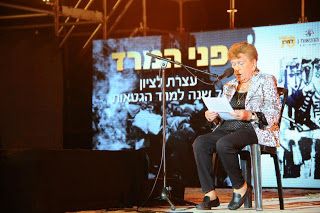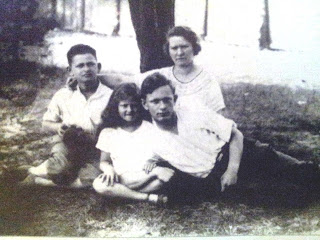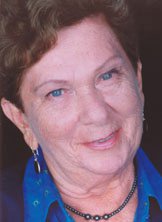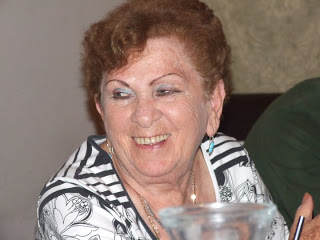 |
| A typical Polish shtetl (small town) that the Nazis wiped out in their entirety |
 |
| Chavka delivering her speech |
Chavka Fulman-Raban – the last of the Warsaw Ghetto survivors
When the last Commander of the Jewish Fighting Organisation (ZOB), Marek Edelman ‘wrote a letter in support of those whom he called “commanders of the Palestinian military, paramilitary and partisan operations – to all the soldiers of the Palestinian fighting organizations.” He was disowned by the whole of the Israeli political establishment, which has never hesitated to use the holocaust to defend the Zionist state.
Below is a statement from Chavka Fulman-Raban, one of the last Ghetto fighters (though strictly speaking she was arrested as a courier for the resistance and was in Auschwitz at the time). Below is the article that Chavka gave on Yom HaShoah, the day commemorating the holocaust of European Jewry.
by Richard Silverstein on April 9, 2013 ·
Crosspost from Tikun Olam
On Yom Ha-Shoah, one of the few remaining living survivors of the Warsaw Ghetto, Chavka Fulman-Raban, delivered a fierce denunciation of evil and injustice, including the Israeli Occupation. Her speech was offered to guests at the ceremony of Beit Lohamey Ha-Getaot (the Ghetto-Fighters House).
I’ve translated it based on the speech she uploaded to Facebook:
Chavka’s family: her mother survived the war. Marek and Vuk died as resistance fighters. There is a unity in this commemoration–70 years since the [Warsaw Ghetto] Rebellion. We’re also nearing the end of the Shoah generation and the last of the [ghetto] fighters. Most of you in front of me, you are the generations of continuity: the second, third and fourth generations. I have mixed emotions and thoughts about the past, present, and future.
I will tell you about one experience from that time. Spring 1942. I was a courier for an underground operation. I arrived to visit my friend from the youth movement, Dror Bachrubishov, in occupied eastern Poland very close to the Nazis.
Chavka I stood in the small railroad station and from the window I could make out, on a field next to the railroad tracks, a great multitude, thousands of men, women, and children. Overseeing them were Germans running wild on horseback. A few meters from me, through the window, I saw four boys digging a hole. The soldiers shot them and they fell into it. The next morning the field was empty. At night, the trains had gone on their way: to the camps, to death.
Chavka’s family: her mother survived the war. Marek and Vuk died as resistance fighters.
These were the moments at which I understood and which I feared: this is the beginning of the end. This is the Shoah. With this terrible truth, I returned to the Warsaw ghetto, to my family which remained there, to my comrades.
The [Warsaw Ghetto] rebellion became for us [at that moment] necessary and clear. We continued educational activities and seminars, the underground school and newspapers. It was important to strengthen the sad, dying ghetto youth.
But at this point, it became most important to find weapons sources. The deportation of 300,000 Warsaw Jews to Treblinka in the summer of 1942 strengthened us and determined for us that the last battle–the armed rebellion–neared. That it must break out.
On April 19 1943, seventy years ago, the first rebellion in occupied Europe broke out–the Jewish rebellion. I wasn’t part of it. As a courier, I had been arrested during resistance operations in Kharkov and had been brought to Auschwitz a number of months earlier.
All of my nearest, most beloved comrades fought from the rooftops, in the fires, from the bunkers. Most of them perished. I hurts me that I can no longer remember all their names. We memorialize only a few. But in my heart I am not parted from them, from the forgotten.
Leave in your hearts and memories a place for them, younger generations. For the beautiful and bold, so young, who fell in the last battle. I wish for the thousands of you before me, lives enriched with love, beauty, laughter, and meaning.
Continue the rebellion. A different rebellion of the here and now against evil, even the evil befalling our own and only beloved country. Rebel against racism and violence and hatred of those who are different. Against inequality, economic gaps, poverty, greed and corruption.
Strengthen humanistic education and values of ethics and justice. These too are [a form of] rebellion against alcoholism among our youth and the terrible phenomenon of attacks against the elderly.
Rebel against the Occupation. No–it is forbidden for us to rule over another people, to oppress another [people]. The most important thing is to achieve peace and an end to the cycle of blood[letting]. My generation dreamed of peace. I so want to achieve it. You have the power to help. All my hopes are with you. If only [you could].
I am so proud to share a religion and ethnic identity with this woman. She represents the best of all that is Jewish. She represents the best of all that is Israeli.
Please consider a donation to support the ground-breaking research, translation and peace-making efforts of Tikun Olam.


